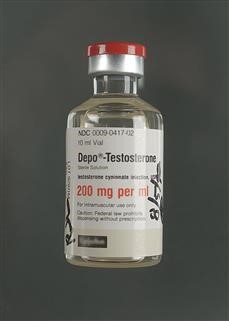The Infertility Organization
Investigations for Infertility in Females
We are the top source for complete info and resources for Investigations for Infertility in Females on the web.
4 IU per L]) can help differentiate between primary and secondary disorders. Causes include: Surgery: Pelvic surgery can sometimes cause scarring or damage to the fallopian tubes. Source : (1).pptx Evaluation of Fertility: A Cornerstone to Improved ... Endometriosis is usually more common in women in their mid-twenties and older, especially when postponed childbirth has taken place.[55] Another major cause of infertility in women may be the inability to ovulate.
Acquired anestrus may result from previous oophorectomy, exogenous hormonal treatment (including glucocorticoids), profound hypothyroidism, or ovarian disease (cysts or neoplasia). Isolated FSH deficiency This is a very rare cause of infertility. However, a woman who does not ovulate at each menstrual cycle is not necessarily going through menopause. Polycystic ovarian syndrome (PCOS) is one of the most common disorders impacting ovulation. Sperm Retrieval for Azoospermia and Intracytoplasmic Sperm Injection Success Rates – A Personal Overview.(PDF, 1 MB) Human Fertility, 2010.
Right here are Some Even more Resources on Investigations for Infertility in Females

Even more Info Around Investigations for Infertility in Females
When the eggs are mature, your doctor collects them with a device called a vaginal ultrasound probe. Unexpected resilience of species with temperature-dependent sex determination at the Cretaceous–Palaeogene boundary. (PDF, 238 KB) Biology Letters, 2010. If the GI symptoms persist, the medication can be administered intravaginally. Sperm or egg donation: If necessary, sperm or eggs can be received from a donor. Fresh Ovarian Tissue and Whole Ovary Transplantation. (PDF, 373 KB) Seminars in Reproductive Medicine, 2009.
Here are Some More Information on Infertility Following C-Section
Through this process, gaps in knowledge and key areas of research required in developing countries and low resource settings will be identified. Affected individuals displayed more severe forms of infertility such as azoospermia and severe oligozoospermia.[27] Other causes[edit] Factors that can cause male as well as female infertility are: DNA damage DNA damage reduces fertility in female ovocytes, as caused by smoking,[28] other xenobiotic DNA damaging agents (such as radiation or chemotherapy)[29] or accumulation of the oxidative DNA damage 8-hydroxy-deoxyguanosine[30] DNA damage reduces fertility in male sperm, as caused by oxidative DNA damage,[31] smoking,[28] other xenobiotic DNA damaging agents (such as drugs or chemotherapy)[32] or other DNA damaging agents including reactive oxygen species, fever or high testicular temperature.[33] The damaged DNA related to infertility manifests itself by the increased susceptibility to denaturation inducible by heat or acid [34] or by the presence of double-strand breaks that can be detected by the TUNEL assay.[35] General factors Diabetes mellitus,[36][37] thyroid disorders,[38] undiagnosed and untreated coeliac disease,[39][40][41][42] adrenal disease[43] Hypothalamic-pituitary factors Hyperprolactinemia Hypopituitarism The presence of anti-thyroid antibodies is associated with an increased risk of unexplained subfertility with an odds ratio of 1.
Even more Info About Infertility Following C-Section
For example, polycystic ovarian syndrome is when the eggs only partially developed within the ovary and there is an excess of male hormones. In some cases, simply removing the submucosal fibroid solves infertility. Patients with this type of uterus can have a normal term pregnancy. Treatment is with human menopausal gonadotropin (HMG) or exogenous FSH. The success of the procedure is related to the diameter of the hydrosalpinx and to the damage to the cilial epithelium. The impact of fibroids located elsewhere in the uterus are controversial and do not always require surgery. These include: Infrequent menstrual periods: When a woman has regular menstrual periods, defined as regular cycles occurring every 21 to 35 days, this almost always indicates that she ovulates regularly.
Previous Next
See also
Risk of Infertility With Pcos
Female Infertility Therapy
Infertility Clinics Raleigh Nc